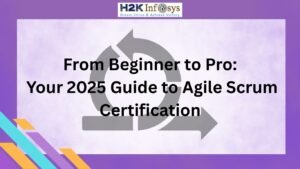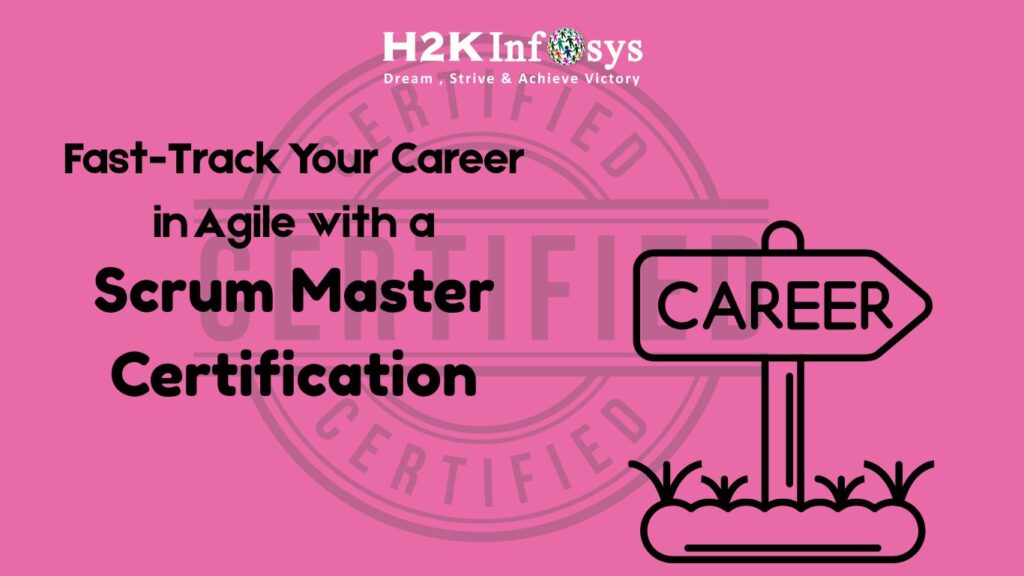The world is growing at a rapid speed. Indeed, its essential components: the work and people, must also move at its speed.
What Agile does is: it combines technology, speed, and ease in work altogether to ensure the productivity is high and projects are closed faster than ever. Throughout recent years, the Agile Manifesto for software development has developed and transformed. As light-footed methods of working, a.k.a Agile, have spread past programming improvement, individuals abbreviated the articulation to simply Agile Manifesto, and at last to simply Agile. It is currently applied to all features of business and has been reached out into training and not for benefits.
One of Agile’s methodologies, Scrum, is becoming one of the most well-known elements required to complete a project successfully and effectively. Thus, let us make sure we know the main agile certifications just as much as scrum certifications to solidify the career path in the industry.
For Scrum Professionals: Certified Scrum Master
The Scrum Alliance is one of the most established and most mainstream accreditations for Scrum. Established in 2002, they have almost a half-million current testament holders for the Certified Scrum Master or CSM job position. Accomplishing the scrum master certification is truly simple, you basically need to take a 2 or 3-day instructional course from somebody that has been qualified as a Certified Scrum Trainer (CST) by the Scrum Alliance. CSM instructional classes can fluctuate in cost contingent upon area and teacher. After the class, there are 35 multiple choice questions to answer in an online test that is pretty simple to pass. The benefits of the CSM is that it is anything but difficult to get. Also, quick – you can pursue a class and in two days you can become a Confirmed Scrum Master.
For Agile Professionals: Agile Certified Practitioner
The PMI’s Agile Certified Practitioner certificate is somewhat not the same as the other scrum accreditations in a way that it covers all of Agile, instead of being just centered around Scrum. So you should be knowing methodologies such as Lean Software Development, Extreme Programming, and Kanban – notwithstanding Scrum. It requires 1,500 hours of hands-on experience in Agile techniques and practices. That is approximately nine months full time. Furthermore, that is frequently a challenge for individuals new to Agile and Scrum who are hoping to add a certification: there is a pretty difficult test of 120 questions that are not open book. You are given 3 hours to finish the test.
PMI additionally expects you to take 21 hours of training associated with Agile to meet all requirements for the test.
The benefit of the PMI-ACP would be that it incorporates a more extensive degree than just Scrum. It is likewise more thorough and PMI is a brand name; one may likewise consider the way that there are not numerous out there holding it to be a benefit also.

Besides these two certifications, there are also other options available. Some of these are:
- Agile Scrum Certification Coach by ICAgile
- Certifications by APMG International
- Leading SAFe Training Course by Scaled Agile
- Certified Scrum Professional by Scrum Alliance
- Certifications by International Association of Project Managers
All these certifications help the certification holders to understand Agile Scrum Certification and its methodologies in its entirety, acquire practical knowledge with the help of practical projects, associates with project level and senior management level jobs, helps to improve qualities such as teamwork and employee management, ensure that you are acquainted with the cost management aspects of the projects, and paves an overall highlighted career path in the various industries – as Agile is now adopted by Healthcare, Finance, Software, and many more industries.





























